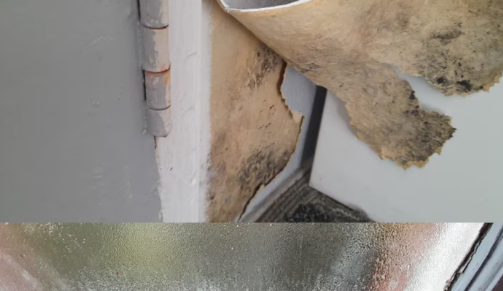Politics
Landlord Ordered to Compensate Tenant Over Unhygienic Conditions

A landlord in Timaru, New Zealand, has been ordered to pay a tenant **$3,400** after a tribunal deemed the rental property “completely unhygienic.” The tenant, who had stopped paying rent for nearly three months in protest, took his grievances to the Tenancy Tribunal, which ultimately ruled in his favor.
In August **2024**, the tenant began renting the property, paying **$450** per week. Serious issues with the rental became evident shortly after he moved in, but he initially hesitated to voice complaints. It was not until November that he reported the problems, which included pervasive black mould, leaks, and inadequate heating. He described the living conditions as “inhumane,” particularly for his **12-year-old son**.
The tenant arranged for a **Healthy Homes** inspection that revealed significant deficiencies, including a lack of insulation, rotting deck boards, and a toilet that smelled of sewage. The inspector noted, “There is black mould everywhere,” and emphasized that the premises were unsuitable for a child. The findings prompted the tribunal to award the tenant **$7,800** in compensation, although this amount was offset against **$4,300** in outstanding rent, resulting in a net award of **$3,400**.
Tribunal Findings and Landlord’s Response
Tribunal adjudicator **Deidre Watson** expressed concern over the living conditions, stating that the persistent dampness and cold were unacceptable. She noted that the landlord, **Miers**, had failed to comply with legal obligations under the Residential Tenancies Act. The tribunal found that Miers had taken the tenant’s bond but had not lodged it with Tenancy Services, demonstrating a disregard for regulatory requirements.
Miers defended her actions, claiming she rented to the tenant out of compassion, believing he was turning his life around. She stated that she had attempted to address maintenance issues but alleged that the tenant obstructed her efforts. Despite these claims, Miers did not provide evidence to substantiate her assertions during the tribunal hearing.
Watson acknowledged the challenges faced by the tenant in finding alternative accommodation, particularly given the presence of a child. She opted not to terminate the tenancy, instead issuing work orders for the numerous issues identified in the property.
Previous Tribunal Cases Involving Miers
This case is not the first time Miers has faced scrutiny from the Tenancy Tribunal. She and her son, **Nicholas Hoogwerf**, were previously ordered to pay over **$30,000** to an Auckland retiree for unauthorized renovations and subletting a property without the owner’s consent. In another instance, a group of renters in Auckland reported similar issues with a property that was not Healthy Homes compliant, which Miers did not attend.
The tribunal’s ruling highlights the importance of adhering to housing regulations, particularly for vulnerable tenants. As Watson pointed out, there may be others in similar situations under Miers’ management. The outcome of this case serves as a reminder of the responsibilities landlords have in providing safe and habitable living conditions.
-

 World3 months ago
World3 months agoTest Your Knowledge: Take the Herald’s Afternoon Quiz Today
-

 Sports3 months ago
Sports3 months agoPM Faces Backlash from Fans During Netball Trophy Ceremony
-

 Lifestyle3 months ago
Lifestyle3 months agoDunedin Designers Win Top Award at Hokonui Fashion Event
-

 Sports3 months ago
Sports3 months agoLiam Lawson Launches New Era for Racing Bulls with Strong Start
-

 Lifestyle3 months ago
Lifestyle3 months agoDisney Fan Reveals Dress Code Tips for Park Visitors
-

 World3 months ago
World3 months agoCoalition Forms to Preserve Māori Wards in Hawke’s Bay
-

 Health3 months ago
Health3 months agoWalking Faster Offers Major Health Benefits for Older Adults
-

 Politics3 months ago
Politics3 months agoScots Rally with Humor and Music to Protest Trump’s Visit
-

 Top Stories3 months ago
Top Stories3 months agoUK and India Finalize Trade Deal to Boost Economic Ties
-

 World3 months ago
World3 months agoHuntly Begins Water Pipe Flushing to Resolve Brown Water Issue
-

 Entertainment3 months ago
Entertainment3 months agoExperience the Excitement of ‘Chief of War’ in Oʻahu
-

 Science3 months ago
Science3 months agoNew Interactive Map Reveals Wairarapa Valley’s Geological Secrets









